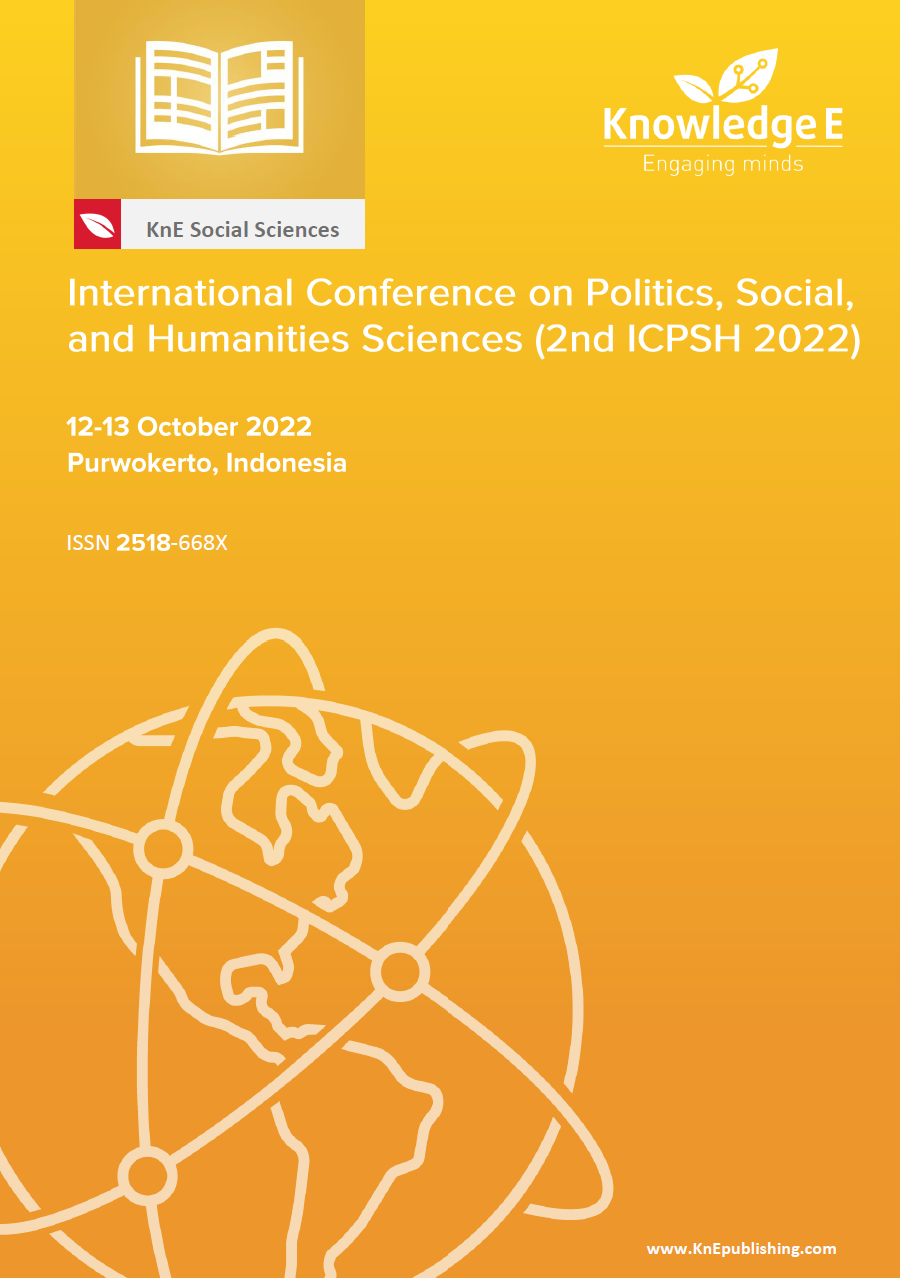Scholarship as a Method to Enhance the Identity of Undocumented Children of Indonesian Migrant Workers in Sabah, Malaysia
DOI:
https://doi.org/10.18502/kss.v8i3.12856Abstract
The undocumented children of Indonesian migrant workers born and raised in Sabah have an identity problem. This is due to the absence of documents and the values, culture, customs, and experiences acquired in the receiving country. Furthermore, an emotional and physical link to the recipient country is built, which causes neglect towards their original identity. The Indonesian Government enacted a policy to revive the identity of undocumented children through the provision of repatriation scholarships. This study aimed to determine the influence of scholarships on the re-emergence of Indonesian identity. It involved a mixed method that combines quantitative and qualitative. Data collection techniques used were questionnaires, interviews, and FGD. The results showed that repatriation scholarships foster the identity of migrant workers’ children as Indonesians.
Keywords: identity, scholarships, undocumented children
References
Muslihudin M, Wulan TR, Sugiarto T, Wardhianna S, Wijayanti S. Integration of Human Resources and the Environment on Productive Migrant Village Programs in Banyumas Indonesia. InE3S Web of Conferences. Volume 125. EDP Sciences; 2019. p. 09014.
Wulan TR, Sugiarto T, Wardhianna S, Wijayanti S. Initial Implementation of Productive Migrant Village (PMV) Programs in Banyumas Central Java Indonesia. In: SHS Web of Conferences 2020 (Vol. 86, p. 01050). EDP Sciences.
Muslihudin M, Wulan TR, Sugiarto T, Wardhianna S, Wijayanti S. Village Elite Role on The Productive Migrant Village Program in Banyumas Indonesia. KOMUNITAS. International Journal of Indonesian Society and Culture. 2021 Jul;13(2).
Muslihudin M, Wulan TR, Sugiarto T, Wardhianna S, Wijayanti S. Migrant Workers Empowerment through Productive Migrant Village Programs in Banyumas, Indonesia. Society. 2021 Jun;9(1):319–30.
Crinis V. The devil you know: malaysian perceptions of foreign workers. RIMA. Review of Indonesian and Malaysian Affairs. 2005 Jan;39(2):91–112.
Spaan E, Van Naerssen T, Kohl G. Re-imagining borders: malay identity and Indonesian migrants in Malaysia. Tijdschr Econ Soc Geogr. 2002 May;93(2):160– 72.
Sheffer G. Diaspora politics: At home abroad. Cambridge University Press; 2003 Apr 10.
Barratt C, Mbonye M, Seeley J. Between town and country: shifting identity and migrant youth inUganda. J Mod Afr Stud. 2012 Jun;50(2):201–23.
Keim I. Linguistic variation, style of communication and sociocultural identity: case study of a migrant youth group in Mannheim, Germany. Multilingualism and Identities across Contexts: Cross-Disciplinary Perspectives on Turkish-Speaking Youth in Europe. Copenhagen Studies in Bilingualism. 2008;45:178–226.
Dollah R, Hassan WS, Peters D, Omar MA. Pendatang Filipina di Sabah: satu pemerhatian dari sudut keselamatan. JATI-Journal of Southeast Asian Studies. 2003 Dec;8:217–40.
Wijayanti S. Zayzda, NA, Wulan, TR. Left Behind Children’s Right as a Norm in ASEAN: A Preliminary Study dalam An Introduction to Globalization and Citizen Practices in Indonesia. Bandung: UPI Press; 2021. pp. 235–47.
Kemdikbud. Tentang ADIK, 2022https://adik.kemdikbud.go.id/tentang-adik/
HS. 152. Anak Pekerja migran Lanjutkan Pendidikan di Tanah Air, 2021, 1 Januarihttps://www.beritasatu.com/nasional/715403/152-anak-pekerja-migranlanjutkan- pendidikan-di-tanah-air
Miles MB, Huberman AM, Saldaña J. Qualitative data analysis: A methods sourcebook. Sage publications; 2018 Dec 13.
Yazid S. Indonesian labour migration: identifying the women. Global Strategis. 2015;9(1):49–62.
Sayed Mahadi SA. Indonesian labour migration to Sabah: changes, trends and impacts. Doctoral dissertation. 2014
KBBI. Kamus Besar Bahasa Indonesia. https://kbbi.kemdikbud.go.id/
Widayanti RS. Manajemen Program Afirmasi Pendidikan Menengah (ADEM) Papua- Papua Barat dan Repatriasi Pada Sekolah Mitra di Daerah Istimewa Yogyakarta. Media Manajemen Pendidikan. 2021;4(2):290–310.
Rika, ADEM. [Personal interview, 4 August] Jakarta; 2022 (unpublished)
KBBI. Kamus Besar Bahasa Indonesia, 2022,https://kbbi.kemdikbud.go.id/
Kahar, Abdul. ADIK. [Personal interview, 4 August] Jakarta; 2022 (unpublished)

